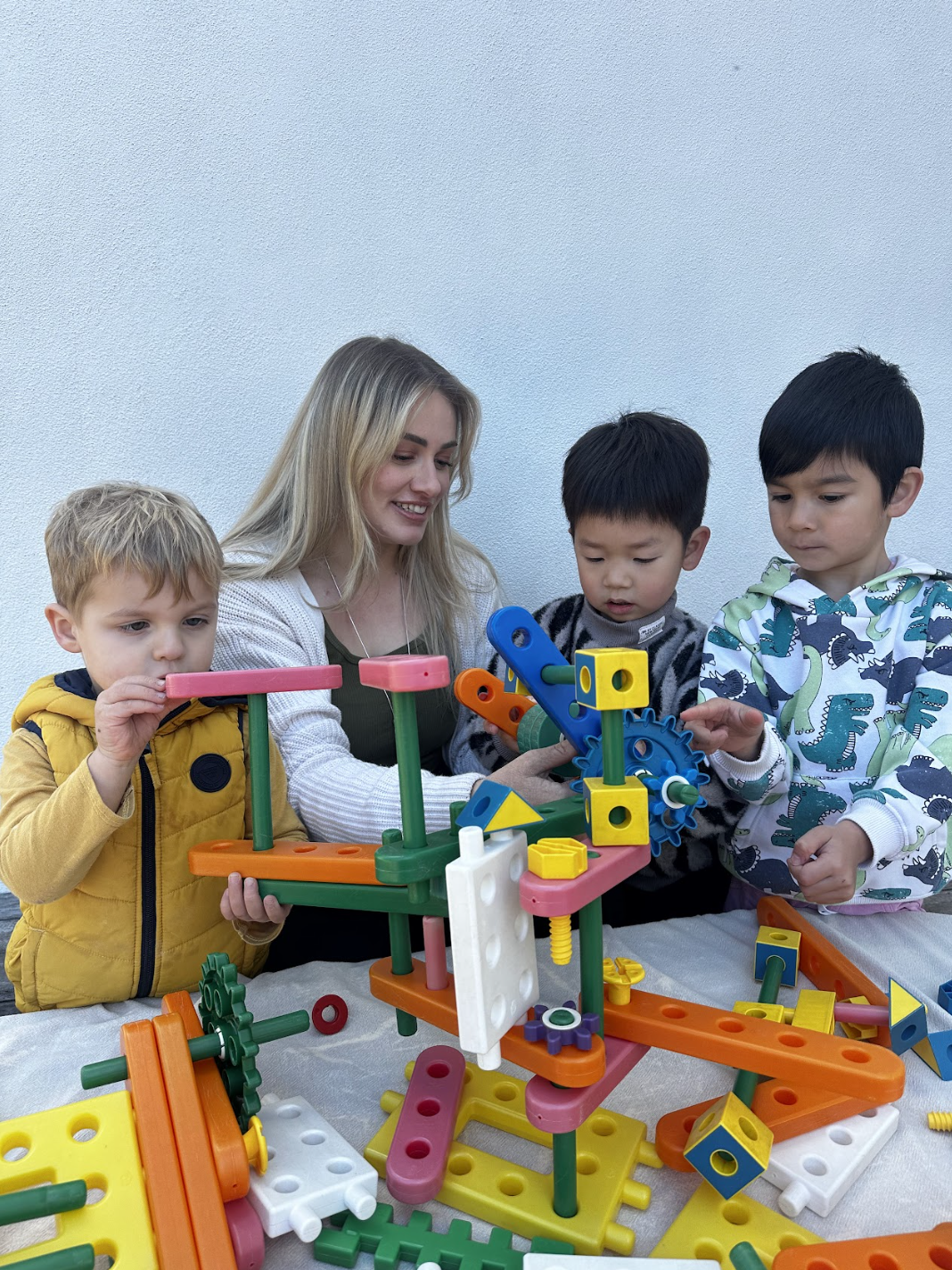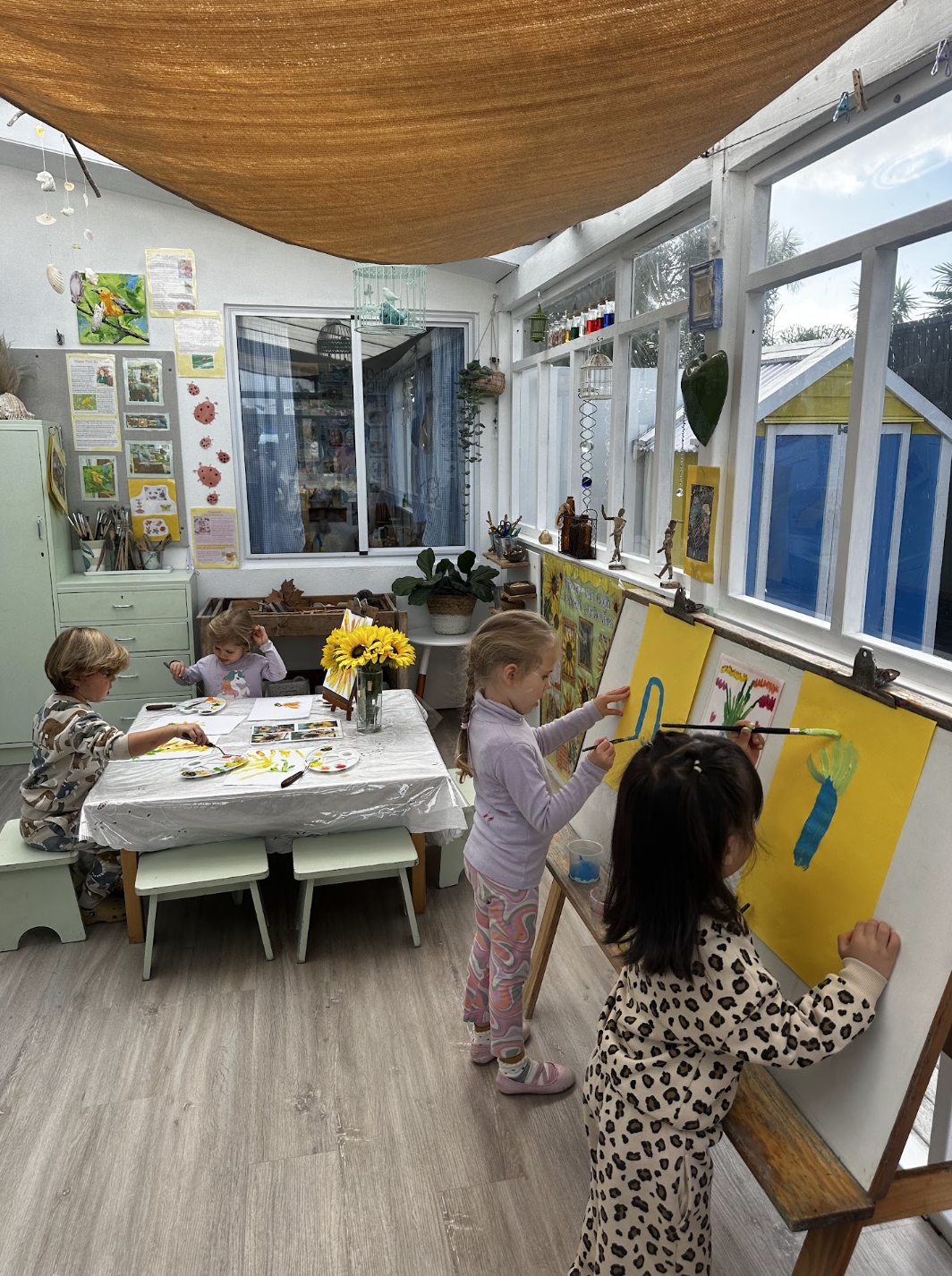Excellence all round
Akarangi | Quality Evaluation evaluates the extent to which this early childhood service has the learning and organisational conditions to support equitable and excellent outcomes


About the Service
Gulf Harbour Preschool is a privately owned centre, with a very long-standing leadership and managementteam. The service is overseen by the owner, who also holds the role of manager, supported by anadditional qualified manager. Leadership responsibilities are shared collaboratively, with both leaderscontributing to the daily operations and curriculum management. The service has a history of consistentlypositive reports.The service’s philosophy is underpinned by Te Whāriki, New Zealand’s early childhood curriculum, whichprovides a bicultural framework for teaching and learning. The service also draws on aspects of the ReggioEmilia and Montessori play-based approaches. These include a focus on child-led and self-directed learning,the environment as a key teaching tool, strong relationships, and the use of structured, hands-on materialsto support independence and exploration. Teachers are allocated to areas of responsibility accordingly.


Learning Conditions
A strong learning-focused partnership with parents and deep connections with whānau effectively empower them to be actively involved in the curriculum.
Skilful and respectful teachers consistently use a range of intentional teaching strategies, including scaffolded interactions, to effectively support and extend children’s learning and thinking. Purposeful provocations within the environment promote sustained engagement and deepen their understanding over time in ways that are visible to and valued by whānau.
Teachers intentionally integrate te reo Māori and tikanga Māori as an integral part of the curriculum, affirming the cultural identity of tamariki Māori. They actively promote and enact a highly culturally responsive curriculum that thoughtfully supports equitable outcomes for all children.
The concept of the arts as another language within the service’ philosophy, effectively supports children’s creativity and meaningful connections to what matters most in their learning. Teachers prioritise the valued learning outcomes from Te Whāriki to inform planning but are still developing ways to evaluate these outcomes against the identified teaching strategies that supports children’s learning.
Learning Conditions
Leaders and teachers increasingly and consistently demonstrate strong professional knowledge of the curriculum and a deep understanding of how children learn.
Leaders have embedded conditions, systems and processes that effectively support ongoing growth for all teachers. A high level of collaboration is evident through teachers’ collective reflection on practice, engagement in the internal evaluation process, and participation in professional learning and development
The professional growth cycle documentation demonstrate that teachers regularly access quality professional learning opportunities and consistently reflect on how these influence their teaching to positively impact learners.
Leaders and teachers have embedded and sustained strong, collaborative relationships with local schools and the wider community, which significantly enrich children’s learning and development. A highly responsive and inclusive curriculum that consistently meets the diverse needs of all children is clearly evident.


Organisational Conditions
Leadership consistently models accountability, fostering teachers’ growth and professional capabilities, aligned with high expectations for quality teaching and learning.
Leadership consistently provides resourcing and allocates regular time for ongoing mentoring and guidance through robust coaching systems. High levels of relational trust within the teaching team contribute positively to outcomes for children.
Leaders demonstrate innovation and a relentless drive for improvement, continuously enhancing systems and practices. They proactively remove barriers to ensure equitable access and meaningful participation for all children, including those requiring additional support.
Leaders and teachers have embedded the use of evaluation for improvement, clearly aligned with the learning outcomes of Te Whāriki. They are continuing to develop their monitoring processes to more clearly show what is working well over time and for specific group of learners.
Organisational Conditions
Stewardship through effective governance and management | Te Whakaruruhau Governance actively upholds equity and inclusion, ensuring all children and their whānau are well-supported through culturally responsive and wellbeing-focused decision-making.
Those in governance are improvement-focused, prioritising the wellbeing of children and their whānauin decision-making. They ensure time is allocated for teachers to build meaningful relationships with every family.
Leaders have clearly identified strategic priorities that effectively target areas for improvement. They purposefully evaluate the impact of their strategic plan, demonstrating strong accountability for positive outcomes for children.
Governance consistently supports positive working conditions that enable teachers to perform at theirbest. It prioritises the wellbeing of children and families, fostering strong foundation for successfullearning outcomes.

